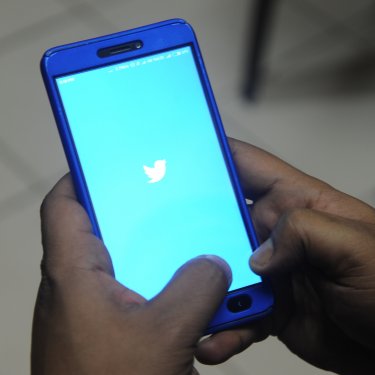US - Online trolls harass journalists affected by HuffPost and Buzzfeed layoffs

Reporters Without Borders (RSF) is disturbed to learn that journalists affected by recent mass layoffs at HuffPost and BuzzFeed were the targets of harassment and death threats from trolls who organized their efforts on a far-right website.
Online trolls coordinated on 4chan, a messaging forum popular among the far-right, to harass journalists who had announced on social media that they or their editors lost their jobs as a result of the mass layoffs at digital media organizations HuffPost and BuzzFeed that began on January 24 and 25. Not long after tweeting about his layoff, former HuffPost reporter Nick Wing said he received an email that contained an image depicting bodies hanging from a tree, a popular far-right meme about killing journalists. Another picture showed Fox News’ Tucker Carlson and underneath, where a scrolling news ticker would normally appear, read the words, “Just kill them. Make America great again,” in all capital letters. Wing also received tweets that included racial slurs and swastikas, many of which remained on Twitter for hours after they were published. Talia Lavin, a freelance journalist whose editors at HuffPost were laid off, was the target of sexist, anti-Semitic slurs and some direct threats on social media. Lavin found a series of 4chan threads where users bragged about “taunting” journalists and called on others to “hammer these [expletive] hard.”
President Donald Trump himself tweeted about the layoffs, which will result in the elimination of significant portions of the media companies, on January 26: “Fake News and bad journalism have caused a big downturn.” His tweet prompted responses throughout the media industry. BuzzFeed Editor-in-Chief Ben Smith called this remark “disgusting,” and Lydia Polgreen, HuffPost’s editor-in-chief, wrote that the laid off staffs “do not deserve this cruelty.” While each company faced unique reasons for their cuts—which simultaneously hit newspapers owned by Gannett, the nation’s largest newspaper chain—the core of the issue is consistent, coming at a time when the journalism industry is struggling to be sustainable or even make ends meet in a rapidly-evolving media environment.
“What was already a difficult week for those affected by the layoffs at BuzzFeed and HuffPost was made that much worse by trolls who took this painful moment as an opportunity to harass and threaten journalists,” said Margaux Ewen, RSF’s North America Director. “Some of the trolls adopted language used by the President of the United States, who himself went so far as to blame the journalists for their firings. RSF is concerned that this verbal violence against the press could translate into physical violence given the increasing reports on online harassment against journalists in the US.”
This harassment does not occur in a vacuum; RSF has reported on many examples of American journalists who have faced online harassment in recent years. CNN reporter Andrew Kaczynski was the subject of significant online harassment following reporting he did in July 2017 on an individual on Reddit, an online forum, who created a video of President Trump wrestling and violently punching a figure whose head was replaced by the CNN logo. Kaczynski, along with his colleagues, received dozens of threats. Jared Yates Sexton, a reporter who received harassment in July 2017 similar to Kaczynski’s for reporting on the same Reddit user, had been the subject of aggressive online harassment for more than two years. On June 28, the same day a man killed five people in the newsroom of the Capital Gazette—a newspaper he had harassed for years—Sexton tweeted: “I’ve been getting an influx of death threats over the past week. I know other journalists who have as well. These things are organized, coordinated, and serious. We’ve pretended they weren’t for way too long.”
The United States ranks 45th out of 180 countries in RSF's 2018 World Press Freedom Index.
For the latest updates, follow RSF on twitter @RSF_en.



